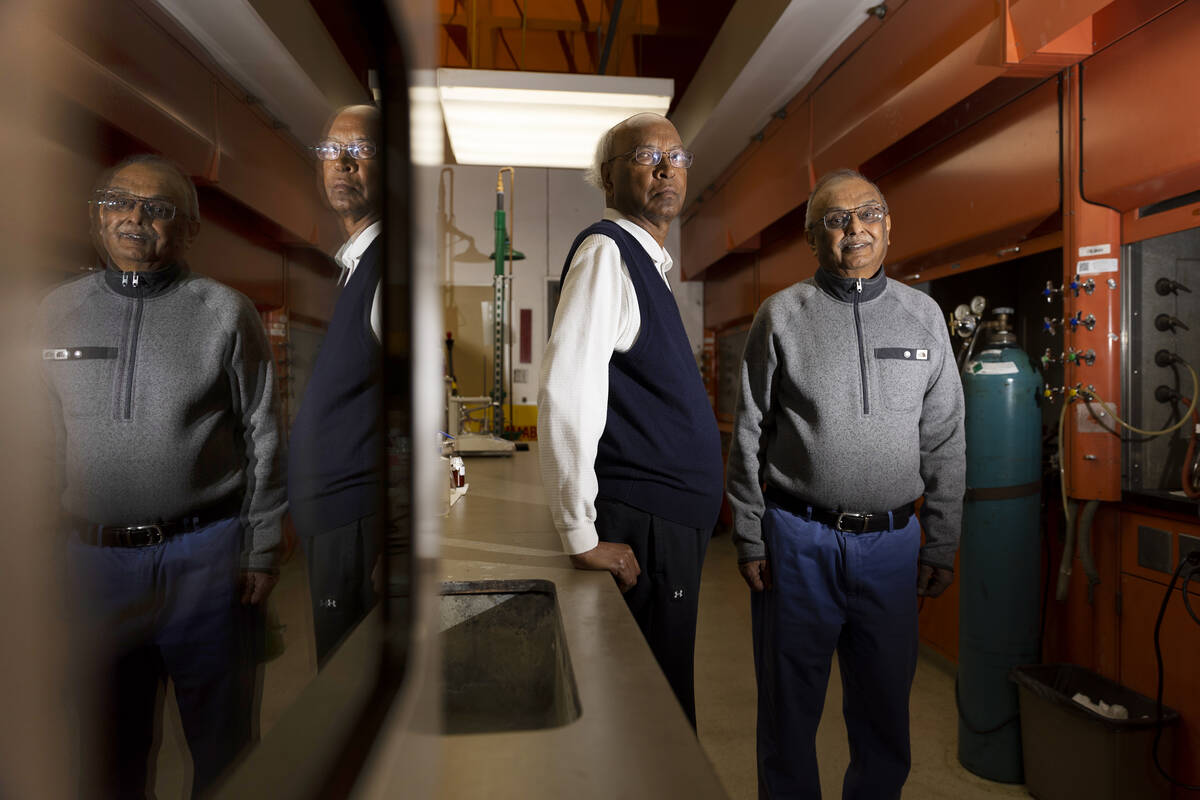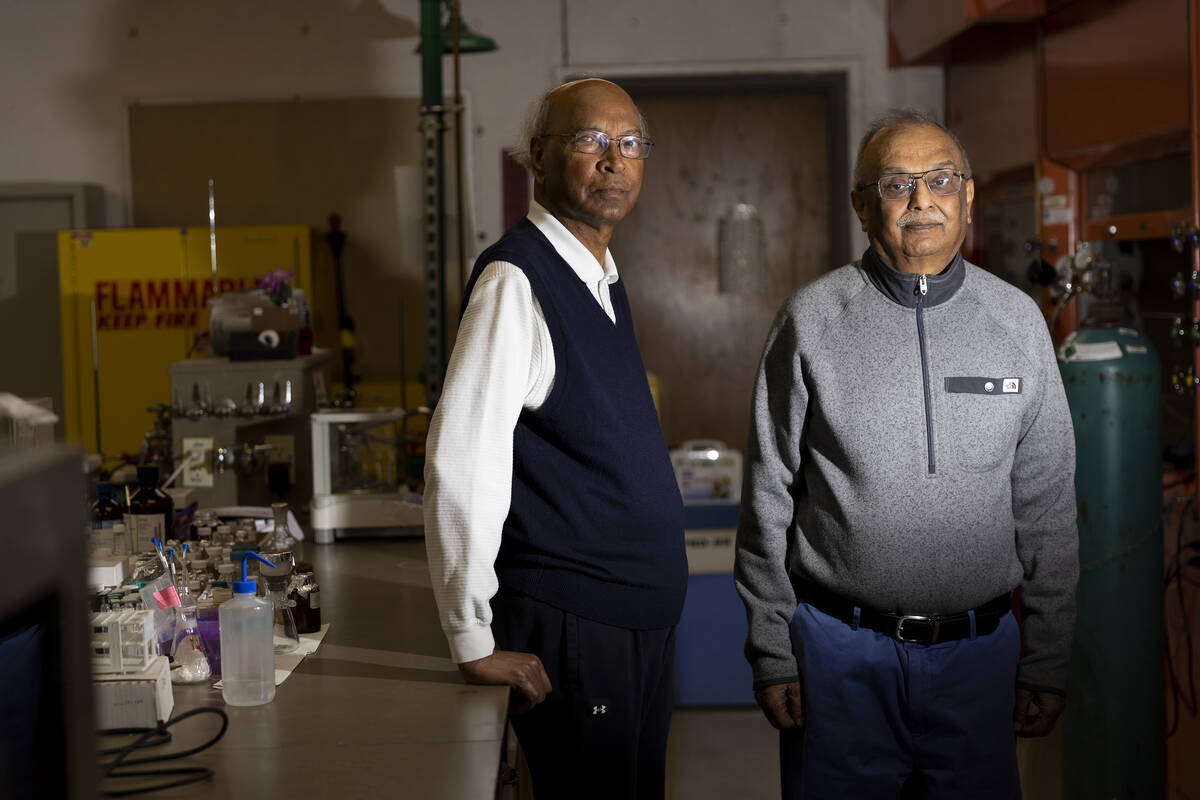Las Vegas startup taps UNLV to help make EV batteries safer
A UNLV professor’s invention is being used by a Las Vegas-based startup to help reduce the number of fires caused by lithium-ion batteries, which are used in everything from laptops to electric vehicles.
Quantum Copper is aiming to make fire-retardant components for lithium-ion batteries, and it expects its product to hit the market within the next year, according to the company’s founder and CEO, Rahul Harkawat.
The startup, based out of UNLV’s Black Fire Innovation building, is getting certifications for its products and working with companies who may adopt its technology into their own products. It’s also planning to open a subsidiary office in Belgium in June.
“It’s a global problem with lithium batteries,” Harkawat said. “We think we have a global market for this.”
Lithium-ion batteries are rechargeable and widely used in products such as phones. The overall market is projected to increase by 30 percent from 2022 to 2030, according to McKinsey & Co. This means Quantum Copper is not only helping to make a product safer but tapping into a market that is expected to grow.
But Harkawat can’t take all the credit.
Pradip Bhowmik, longtime chemistry professor at UNLV, invented the polymer, or large structure of molecules, that helps make Quantum’s batteries fire retardant. He first started work on the polymer around 2008 and has 10 patents around the invention.
“No polymer has ever been used for fire prevention in the battery,” Bhowmik said. “Our invention is unique because of the additive that they currently input to prevent fire — they leach out. But my polymer cannot leach out, and that’s the novelty of this invention.”
Bhowmik, who serves on Quantum’s technical advisory board, said that his polymer is a more complex chain of chemicals than what is currently used in fire prevention materials, which is typically made of chemicals like bromine that can also be environmentally harmful.
Harkawat has over 35 years of experience developing startups and companies, and participated in UNLV’s Technical Advisory Committee, which brings the university’s intellectual property to outside people looking to bring those ideas to market. When he learned of Bhowmik’s invention at the committee, he saw real commercial possibilities.
‘Neat to see’
Quantum launched in 2021 and has six employees. The company raised about $400,000 in funding and is looking to raise an additional $1 million, according to Harkawat.
Brian O’Connor, fire protection engineer at the National Fire Protection Association, said the number of lithium-ion battery-caused fires is rare but the fires can be severe in terms of its volatility and duration.
“(Lithium-ion batteries) can store a lot of energy in a small footprint, and when that energy is released uncontrolled, that’s when bad things can happen,” O’Connor said. “We know these are pretty severe fires, because they can grow really quickly.”
He said the energy stored in the batteries can cause them to reignite after they’ve initially been extinguished. O’Connor also said the most fire damage comes from medium and large lithium-ion batteries used in electric scooters, e-bikes and EVs.
In Clark County, there hasn’t been a large trend of lithium-ion battery fires, according to Carlito Rayos, assistant fire chief for the Clark County Fire Department. But he said lithium-ion caused fires are being widely discussed among firefighters across the country as more EVs appear on the roadways.
“With increased popularity of, and options for, electric vehicles and our continued population growth, we know that we can expect to see more of these incidents,” Rayos said.
It’s unclear how often battery-caused fires happen since national fire databases and CCFD doesn’t collect that data as of now, Rayos said. But he estimates that in the past two years, the department has responded to three EV fires, which were harder to manage than typical car fires since it takes longer to ensure battery packs are properly extinguished.
With the increased severity of lithium-ion battery fires, anything that can be done to help prevent these fires is supported by Rayos.
“This solution is not going to be solved by fire departments,” he said. “This is going to take ingenuity and engineers and design. And that’s really neat to see all of these folks coming up with these different options.”
Contact Sean Hemmersmeier at shemmersmeier@reviewjournal.com. Follow @seanhemmers34 on Twitter.


















